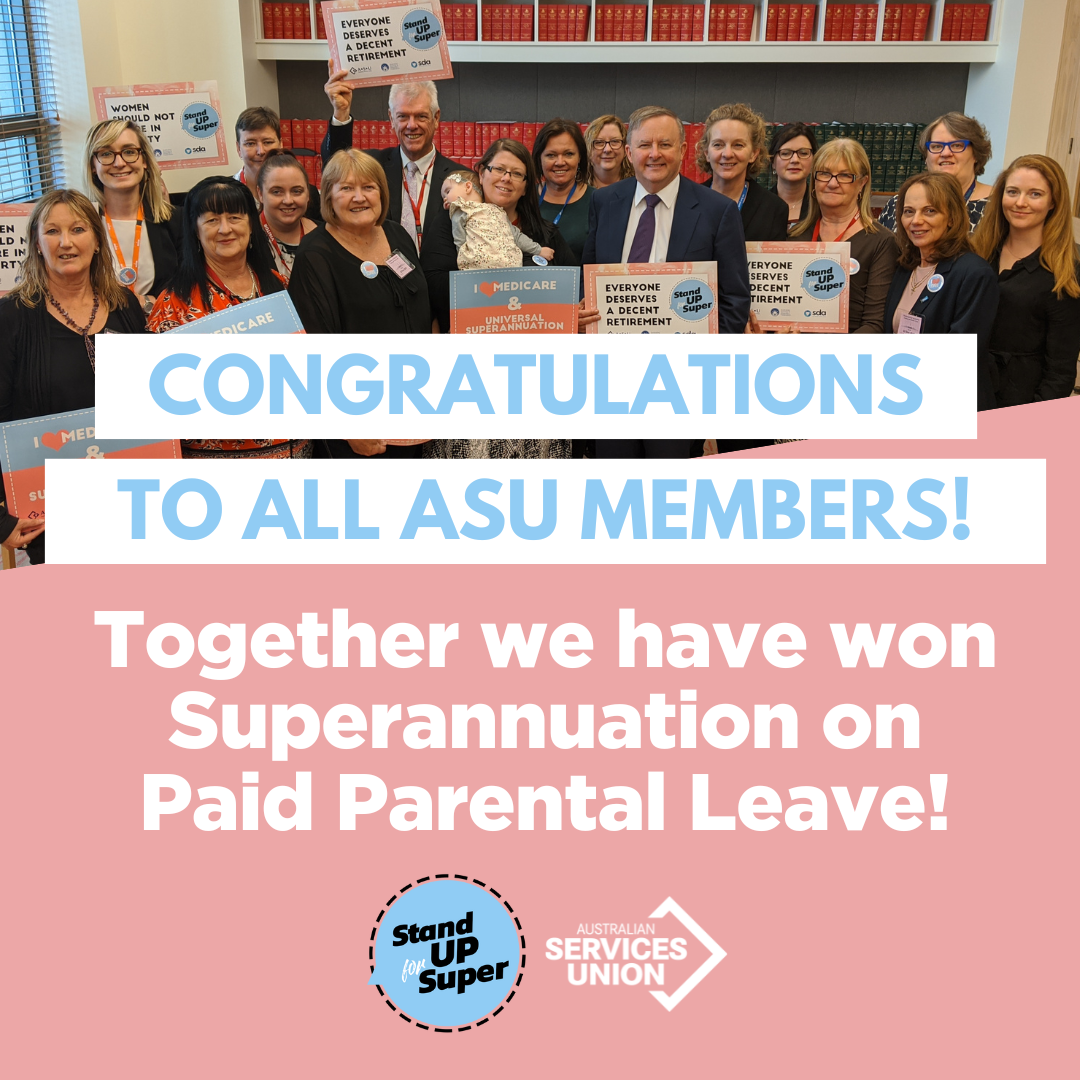The Federal Government’s announcement that superannuation will be paid on government-funded paid parental leave follows a seven-year campaign by the Australian Services Union, which kicked off with the union’s 2017 Not so super for women report.
Describing it as a “landmark victory in the fight for fair retirement outcomes for women”, ASU Assistant National Secretary Emeline Gaske thanked members and lauded the leadership of her predecessor, the late and much-loved Linda White, who championed this reform for a decade.
“Our super system has let down women for a generation and on average, women have about half the superannuation balances of men,” Ms Gaske said.
“A key reason women retire with half the super of men is because they don’t earn super on every dollar they earn.
“In fact, paid parental leave is the only type of leave a worker will earn in their lives that does not attract super and addressing this loophole is long overdue.
“Linda White and the ASU put this issue on the national agenda and kept it there for almost a decade and this is a fitting legacy that honours her work and memory.”
Ms Gaske said carers who took paid parental leave – overwhelmingly working mothers – were currently “punished for this choice by losing out on essential super contributions”.
“The effect is compounded over years and results in a smaller retirement balance and lower quality of life,” she said.
“Paying super contributions during paid parental leave is a vital step in closing the retirement gender pay gap.
“This is a significant win for all workers, but particularly for women who work in female-dominated industries such as those represented by the ASU.”
Ms Gaske said the Not so super for women report found that over 70% of women had estimated balances under $150,000 and almost a quarter had balances less than $50,000. Meanwhile, 1 in 4 men had balances over $500,000, compared with 1 in 25 women.
The hard-won policy shift would support millions of Australian women to have a more secure retirement, she said.
“The ASU was the first to put this on the radar of governments and has lobbied tirelessly ever since, including countless trips to Canberra and the release of the Not So Super, For Women report,” she said.
“Today is a proud day for all of us.”

